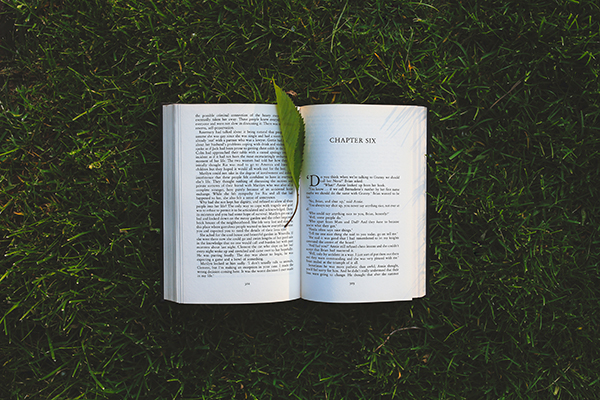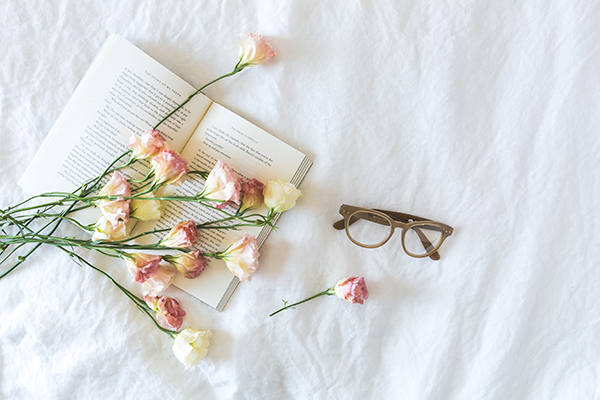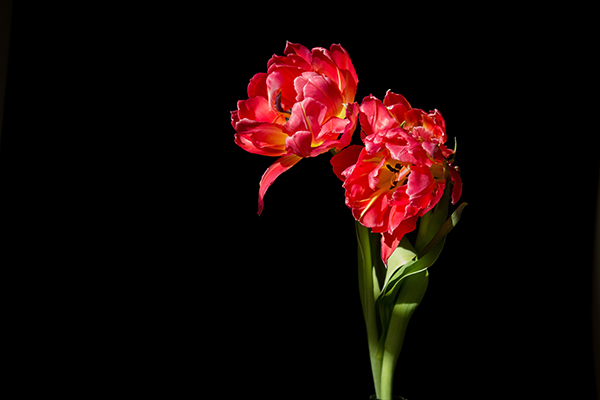A Writer’s Life: “Dueling Sisters”
I am a writer. I have been haphazardly telling myself this simple truth since I was a kid. Writing wasn’t something I stumbled into during some great awakening of youth, nor did it come as an epiphany when experiencing “empty-nest syndrome.” Words always have been swimming around in my head begging to be captured on paper. I was born to be a writer whether I knew it or not, and many times I can say clearly I did not. But life threw me many curve balls, starting with becoming a mother at the young age of 20 and, more recently, making the decision to study Political Science at the golden age of 53. I have made many decisions that I have regretted, but getting my stories out there isn’t one of them.
It took a lot of guts and self-awareness to tell myself I wasn’t full of beans. After all, who was I to consider myself in the same profession as Ernest Hemingway, F. Scott Fitzgerald and Jane Austen? A poor Hispanic girl from Brooklyn is a universe away from that kind of literary greatness, and I reminded myself of this fact quite often. However, it finally dawned on me that I didn’t need to aspire to someone else’s greatness, only my own. That slow, perceptual mind shift began a few months ago in the office of my news-writing professor who said without fanfare, “You are a great writer.” That simple acknowledgement set off a chain of frenzied ideas that had been bubbling beneath the surface of my brain for years and morphed into a profound wish to write a series of short stories based on my life.

Photo by Kaboompics.com from Pexels
But when was all this writing supposed to happen? Between my third-shift job at a hospital emergency room and my Political Science classes? Between sleeping during the day and completing daily workouts? Better yet, between doing laundry and fixing dinner? So many daily duties, so little actual writing time. I knew if I overthought the decision, I would be doomed. I like routine. If forced to build writing into my hectic schedule, I would find an excuse not to do it at all. I would always have to work and sleep. And I already had made the conscious decision to go back to school. My storytelling didn’t start by sitting in front of a computer with a blank screen wondering how to start, but oddly enough, during my half-hour commutes to and from work. I would reminisce about little incidences in my life that made me laugh. These simple reveries initiated a torrential downpour of memories that flooded my consciousness. Then, during my rush home after work, I decided what I wanted to say, how I wanted to say it, and–before the stories left my brain–I felt compelled to get them on paper.

Photo by The Lazy Artist Gallery from Pexels
I wrote a total of five stories before I gathered enough confidence to submit one to several online publishers. After many rejections, my first story was accepted. I named it “The Diet Life,” and it was my first publication. I sent text messages to everyone I knew, posted the link on Facebook, and spoke to my co-workers ad nauseum about my literary coup. In the process, I began to wonder if anyone would actually like my story. I worried for days. What if readers hated it? What if they failed to see the humor in it? What if they thought I was a lousy writer? Anxiety grabbed hold and held me hostage. My old demons were haunting me again, causing me to doubt my writing abilities. I waited for feedback, expecting the worst. I was prepared to accept constructive criticism, but secretly didn’t want to hear it. In all actuality, I wanted everyone to love my story.
The reviews slowly rolled in, and how lovely they were. People really did like my story. My confidence grew with each “thumbs up” and congratulatory text. As the feedback continued, I was surprised at some of the comments that I received on Facebook. Quite a few readers could relate to my tale of “weight woes.” Friends could identify with my diet failures and talked about experiencing similar scenarios in their lives. They chuckled at my crazy schemes to lose weight because they had done equally wacky things. My story, which had encapsulated a particular period of my life, attracted an audience that was connecting to me. In attempting to capture that time, I realized that my story was timeless in a way I hadn’t anticipated. You didn’t need to grow up in the seventies or eat a Latino-based diet to understand my diet woes. You just needed to have been a chubby child.

Photo by Burst from Pexels
The story you are about to read represents the start of my first book. The stories of my life. The stories of my youth. I would love for you to join me on this crazy journey. The story is titled, “Dueling Sisters.” Tiptoe with me through an amusing chapter in my life because we all need to giggle or we’re doomed. Yes, I am a writer. I may not be Jane Austen, but I’m doing a pretty good job just being me.

Photo by Julia Zolotova from Pexels
Dueling Sisters: A Short Story by Cynthia Reyes Masse
Growing up with an older sister can be rewarding, I’ve heard. You have someone to whom you can tell your secrets, you can cover for each other, and you can exchange clothes and jewelry. This sentiment sounds good on paper, but the reality for me was that sisterhood was more like a constant cage match, especially since I shared a room with my older sister. We each had a designated side of the room with an invisible line down the center that never should be crossed. If I had the audacity to commit the cardinal sin of dipping my toe over the line, then the proverbial bell would sound, and we would come out fighting like sumo wrestlers using the same signature “hair-pull” move. If the referee heard the pandemonium and name calling from across the house and, God forbid, the referee happened to be Dad, my sister and I would be worse off than when we started. But the referee was seldom Dad, and usually Mom was the one who rushed into the room to tear us apart. We would still be foaming at the mouth, but my sister Janet would give me the ‘nod’ and hold her fist in the air before she conceded. That was her “I’ll-get-you-later” sign.
I don’t think Janet liked me very much growing up. Yeah, sure, you love your siblings, but you don’t have to like them. I was annoying in the way that my younger brother was for me after he was born, except that he and I didn’t share a room. When Louie was old enough to walk, he got a thrill out of coming into my room just to knock down my Barbie Dream House every opportunity he could get. I could shoo him away or pick him up and take him out of my room. But with Janet, things were different. We shared the same space with no way of getting away from each other. There must have been something irritating about having a younger sister who tried endlessly to be as cool as she was. And I did. Try to be like her. My clumsy attempts at being cool never went unnoticed. “Stop copying me!” was Janet’s battle cry throughout most of my childhood.
So there we were, two sisters who were three years apart and a world of tastes and idiosyncrasies away. We each had a twin bed on opposite sides of the room, which we moved around systematically throughout our childhood. We each had our own posters on the walls, trinkets on our bookshelf headboards, and stacks of records, all of which were another source of contention. As a teenager, Janet got deep into the disco scene. She owned every disco record on the Top 40 List from the Bee Gees to Donna Summer. I despised disco. I had carved out my own niche in the music genre of the ‘70s, which did NOT include disco. I was a bona-fide “rocker chick.” My record collection was two feet high (not including 45’s), and my collection consisted of Styx, ELO, Queen, Loverboy, and the like. No, disco was a fad that I felt would end. Janet would be left with her disco records, and I would live in infamy as the girl who was smart enough to know that disco really did suck.
Musical tastes weren’t the only thing that put Janet and me on opposite sides of the spectrum. Her strange sleep rituals also irked me. When she was ready to go to sleep, two conditions weren’t up for debate. First, the lights must be off. If I happened to be reading, too bad. If I was writing one of my crazy preteen love stories, I had to move my notebooks to the kitchen to finish my work. “Tough luck,” my sister would say. If she was ready to sleep, she had to have complete darkness. The other thing she had to have was the radio on — all night. The volume would be low, but I could still hear the music. And here is where things got very annoying. I had to have silence to sleep. However, having the radio on was her decision to make. Janet was older, and she had the right to rule her domain as she saw fit. I didn’t have any say in the matter. It was as if she were paying the rent, and I was squatting in a portion of the room. “I’m older so what I say goes” was her mantra. I didn’t realize at the time, but her favorite AM radio station played a lot of oldies at night, which my brain absorbed on a subconscious level. As an adult, I was able to sing many ‘60s songs almost word for word. I never quite understood how I was able to sing those songs until I was somewhere in my thirties. The memory of Janet’s radio playing and the soft tones of the Mamas and the Papas singing about California dreaming had caused those subliminal, musical memories to come rushing back.
Our room had one small communal closet. Janet’s clothes went on the left, my clothes went on the right, and our clothes could never touch because, if they did, Janet would be none too happy. That’s when the little-sister-not-cool thing began, with our wardrobes. Janet had the best clothes I would always think. She had the Jordache and Sergio Valente designer jeans, while I had the Sears, reinforced-patch-in-the-knee jeans. The reality was that her ultra-modern jeans didn’t come in hefty sizes, so I was out of luck until a few years later when I bought a pair of Size 14 Gloria Vanderbilt jeans into which I could stuff my thighs. Mom would always say that Janet could wear nicer clothes because she was older. I heard the word “older” so many times during my childhood that I cursed my birth year on a regular basis. Why did I have to be so much younger? Being young seemed like an affliction that would shake me to my core. But really, what did I know about core shaking? “If only I were older” became my explanation for why certain things didn’t go my way. If only I were older, I could ride my bike past the two blocks that I was allotted. If only I were older, I could stay out a little later with my friends. If only I were older, boys would like me more. I couldn’t fathom that–even when I turned 13–Janet would be 16 and cooler. And when I made it to 16, she would be 19 – still cooler. Our age difference finally stopped bothering me when Janet turned 30 and I was a cool 27. That’s when being younger became something I could smile about.
But, at the time, I envied her teenage designer couture. Janet made it abundantly clear that I was never to touch her clothes, or I would face her wrath. Still I wanted in on the action, damn the consequences. Her jeans were out of the question, but her blouses and sweaters were worth the eventual beat down if she caught me wearing them. I was smug enough to concoct a plan that involved timing and playing dumb. When I finally made it to high school, Janet was already a junior at the same school. She always got ready first thing in the morning and was out the door before I could even put on my socks. I would pretend I was too tired to start the school day early while secretly planning my wardrobe thievery. Most of the time I got away with it, and Janet would be none the wiser except for the one time I clearly “borrowed” the wrong sweater. It was a beautiful, bright pink sweater, and I had been eyeing it from the moment she brought it home and clipped off the tags. I had to find a way to get my hands on that sweater and wear it to school. So, one beautiful Fall day, after Janet unceremoniously left for school, I set my sights on the pink sweater, grabbed it, pulled it over my head, and high tailed it out of the house. Boy, was I in for a beating.
I seldom saw Janet on any given school day. Our high school was quite large and was comprised of two main buildings connected by a ramp. She and I ran in different circles, were in different grades, and never took classes on the same floor of either building. But as fate would have it, Pink Sweater Day had us crossing paths on the same ramp between classes. She spotted me immediately as anyone would because the brightness of the pink could probably be seen from a helicopter hovering overhead. I could see the anger in her face as she walked with her friends in the opposite direction, never taking her eyes off me. Then she made the gesture–the grand hand gesture–that signaled my short life would soon be over: the nod and the air fist. I looked away as quickly as I could but knew I was in a classic, no-win situation. I was going to take a beating. No way around it. Game over, film at eleven.
I ran home that day with the speed of a car thief being chased by the police. As I was in the process of nervously taking off the sweater, I heard the front door open followed by the scream, “I’m going to kill her!” Mom was home, but I don’t remember if she said anything as Janet stormed through the house. And it wasn’t good. As soon as Janet got to our room, she pounced on me and started punching me with the precision of a prized fighter. She backed me into a corner of the room with fists flying as I held my arms in front of me in defense. When I couldn’t take any more, I cried out for Mom, who already had heard the scuffle. Mom pulled her away, but not before Janet got in a few last kicks to my shins. I was beaten and defeated. I would never accidentally-on-purpose borrow any of Janet’s clothes again.
Janet and I would always remember Pink Sweater Day. Oddly enough, we laugh when we do. The funny thing is that when we talk about that day, she still thinks I deserved what I had coming. Two sisters who couldn’t get along as kids ended up being best friends as adults. Oh, and the irony of all ironies would be that when Janet had her own kids, she ended up having–what else? Two daughters.
